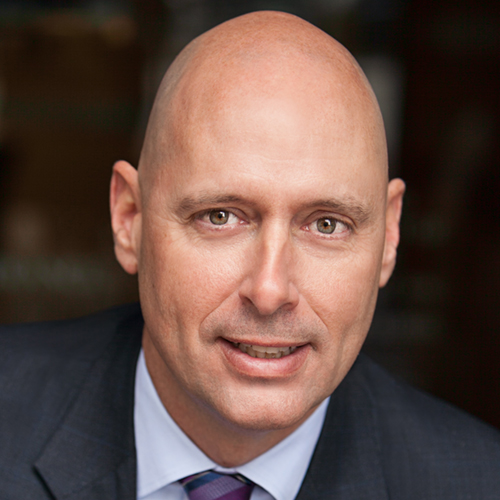Articles by Gerelyn Terzo
PayPal & LendUp Bridge Financial Inclusion Gap
July 25, 2017
PayPal put its stamp of approval on fintech startup LendUp, evidenced by a strategic investment by the eBay spinoff in recent weeks. In doing so PayPal demonstrated its commitment to non-prime borrowers, which is the demographic that San Francisco-based LendUp targets.
The pairing brings together the chief executives of two companies – Sasha Orloff and Dan Schulman of LendUp and PayPal, respectively — who have been at the forefront of fintech and who together will likely play an expanded role together.
“People care about the ability to build credit and about having a safe product and a really great user experience. We are aligned with PayPal there. Dan is a pioneer in financial inclusion. He is a ringleader in the industry. There is an exciting momentum from an executive leader with a voice for financial inclusion from one of the largest and most successful fintech companies,” Orloff told deBanked.
PayPal’s mission is similar.
“LendUp and PayPal share a vision of reimagining financial services and offering innovative solutions to people typically underserved by the traditional financial system. PayPal has made a strategic investment in LendUp to help this fintech innovator continue to grow and broaden its positive impact on improving financial health,” according to a PayPal spokesman.
LendUp focuses on the emerging middle class, including those who were left behind in the wake of the financial crisis. Orloff pointed to a macroeconomic shift beginning in 2008 with the creation of Dodd Frank, which is contributing to a deep well of financial exclusion. “More than half of the country has a credit score below 680 and are excluded from many bank products,” Orloff added.
Meanwhile as online lending has taken root banks have demonstrated a stubborn inability to become tech focused
Second Time Around
Orloff and Schulman are no strangers to one another. Previously the LendUp chief was senior vice president at Citi Ventures, Silicon Valley’s maiden venture capital firm for early stage fintech, while the PayPal president and CEO served as group president of enterprise growth at American Express.
“Through the process I met Dan Schulman [then] at American Express. He was a big champion of financial inclusion. He had been tooting the horn at AMEX for a long time and had been leading their financial inclusion revamp,” said Orloff.
While at Amex Schulman was LendUp’s executive sponsor before taking the helm at PayPal. Soon after the teams reconnected and recognized even more possibilities beyond the PayPal ecosystem, such as providing access to credit and helping borrowers to build a credit score. There is also the massive PayPal database to consider.
“PayPal has a bigger reach and a more relevant audience,” said Orloff, declining to tilt his hand to the specific ways in which LendUp and PayPal will partner. “We have a lot of conversations in the works. That is absolutely part of the investment and we are excited,” noted Orloff.
LendUp earlier this year surpassed the $1 billion threshold for loan originations since the company was founded half a decade ago.
“We are a balance sheet lender,” said Orloff. “But we just continue to grow so quickly that we’re going to need to diversify our funding sources over time. We set up structures to do that now, and [investor] Victory Park is an amazing supporter,” said Orloff, pointing out that LendUp just doubled its access to capital with a $100 million credit facility to fund loan growth. “Eventually we will outgrow them as a single funding source. And that will come up soon.”
LendUp’s trifecta of offerings include credit cards, loans and financial education. The education is delivered via online videos and courses that highlight how much bad credit can cost borrowers, evidenced by $250,000 in fees paid by an average consumer with bad credit over their lifetime, according to LendUp stats. LendUp provides tools to help people to improve their credit score, ultimately making it easier and cheaper to borrow money. LendUp has saved its customers nearly $150 million in fees and interest.
Meanwhile LendUp and Beneficial State Bank recently announced an expansion of their credit card, the L Card, which should quadruple the availability of the Visa product.
“We launched the card recently and already by just having a simple and transparent credit card we’ve gotten a top rating in the credit card space,” said Orloff, adding that there is more to come. “We are going to completely revolutionize what credit cards mean for the emerging middle class. We are going to bring innovation that has not happened before. We are almost ready to launch and share that.”
Orloff expects that LendUp will grow in “overwhelming influence” over the course of the next year.
Grameen Bank Effect
For his part, Orloff has always had a penchant for helping the poor, evidenced by his efforts with the Grameen Foundation supporting financial services in rural and under-served areas. His work with the foundation was inspired after reading Nobel Peace Prize winner Dr. Muhammad Yunus’ book Banker to the Poor.
From there he moved on to Citi, where he did credit underwriting before joininig Silicon Valley’s maiden venture capital firm for fintech, Citi Ventures. In 2012 LendUp was born and Orloff has been determined to provide good structured products with embedded education that can help to make people more successful ever since.
Fintech Remains Loyal to Prosper & Suber
July 10, 2017
When deBanked reached out to fintech market participants for comment on Ron Suber’s sudden departure as Prosper’s president, the responses were the same — ‘anything for Ron.’ Dubbed the Godfather of fintech, Suber might deserve superhero status given the recapitalization that he and the Vermuts led half a decade ago to save Prosper Marketplace. That type of rescue inspires the kind of loyalty that investors and other fintech participants are displaying not only for Suber but also the Prosper brand.
“Ron is an incredible business partner. His word is always good. He doesn’t overpromise, and he always follows through. We were honored to work with a guy like that,” said Matt O’Malley, co-founder and president of Looking Glass Investments, which has been investing on the Prosper platform since 2008.
Perhaps he has never seen him overpromise but in recent weeks he and many other investors on the Prosper platform did observe an overstatement of returns. O’Malley calls it a forgivable mistake.
“In my view, it is our responsibility to track our returns. Prosper provides an extremely robust data set. We have the ability to calculate our returns daily,” said O’Malley, pointing to a nascent fintech market that is still evolving. “This asset class is new. If you compare it to investing in stocks and bonds, it’s in its infancy. When preparing returns, it’s very challenging to determine what they are,” he said.
Looking Glass has been investing in individual loans on the Prosper platform since before Suber’s time and has watched as the former Wells Fargo executive has transformed the peer-to-peer lender to welcome institutional investors.
“He didn’t have to let us stay on the platform. They could have chosen to replace the little guy. But that isn’t how he does business. He knew the investment banks and [other] banks would get involved, however he knew there was enough room for everyone,” said O’Malley.
That day is here, evidenced by Prosper’s previously announced deal with a consortium of institutional investors to purchase $5 billion worth of loans via the Prosper platform over the next couple of years.
FT Partners was the lead advisor on that deal.
“When they needed capital they could have chosen anybody to help. We were excited to be the chosen one to help them on the deal. It was one of fintech’s largest deals and certainly the largest of its kind,” said Steve McLaughlin, founder of FT Partners.
McLaughlin went on to explain the unique circumstances surrounding the transaction, including a lack of diversification tied to Prosper’s capital sources, which he added was a learning experience not only for the peer-to-peer lender but for all of fintech.
“They were focused on getting capital from hedge funds in a steady stream. When the capital markets had a blip, lots of that capital backed away. It was an unprecedented thing to go out and get a $5 billion forward agreement from a series of investors. “There was nothing cookie cutter about it,” said McLaughlin.
Since then the rest of fintech seems to be catching on.
“FT Partners is getting a lot of attention and a lot of calls for all of the other activity we are doing in the space as well. We raised capital for Prosper and a bunch of other companies, including Earnest, GreenSky, Upstart, Kabbage and others. We get a lot of calls, and we’re doing a lot of deals in the space. It’s a lot of fun,” McLaughlin said.
Much of the success of the multi-billion dollar Prosper deal was thanks to Suber.
“A lot of people are very familiar with Ron and the Prosper story and view Prosper as a high-end institution that while having some issues on financing had a very big and long-term future. Lots of Ron’s connections from before came into play in the round,” said McLaughlin.
Now that Suber is out of the picture in an official capacity, investors have every right to be disappointed. But as McLaughlin pointed out, Suber remains a big shareholder in Prosper and the peer-to-peer lender’s greatest supporter, two things that the FT Partners founder does not expect to change.
“This is not a major blow for Prosper. They maintain Ron as a friend of the firm and as an advisor. He has great friends and colleagues at Prosper. He is not going to work for anybody else. He won’t be doing anything with any other lending companies, I don’t think. He may be able to do more good from the outside than the inside at Prosper. I think Ron will always be part of the Prosper family,” McLaughlin said.
Why Now?
If things were going so well for Suber ushering Prosper into its chapter that included expanding the role of institutions on the platform then why is he leaving now? While Suber himself was not available to answer that question, the answer seems to be that it is personal. The fintech community knows Suber for his role in advancing this new asset class but what people might not know is that he is also a husband and a father.
“I think he just feels like this is more of a personal shift,” McLaughlin said.
O’Malley’s impression was similar. Upon joining the fintech startup, Suber made it a point to get to know the Looking Glass team.
“Ron invited us to breakfast. We did this three times. I remember meeting him and thinking this guy is exactly what we need – extra bright, charismatic and he talked lovingly about his children and his wife. He even joked that marriage is like yoga – it’s harder than it looks,” O’Malley said. “My guess is they are going to spend some time together as a family. And he is going to come back bigger and better than ever.”
Meanwhile Both O’Malley and McLaughlin were familiar with Prosper before Suber came on board, and both will remain engaged with Prosper even after Suber’s departure.
“They’re terrific and we have a great relationship. If they do something, we’re definitely the banker for it,” said McLaughlin.
O’Malley’s commitment is steadfast “We will remain loyal,” he said.
Easy as Pie? Square Reaches For a Slice of the Consumer Lending Market
June 30, 2017Tod Wilson, founder of Mr. Tod’s Pie Factory in Englewood, N.J., is a Square Capital chief evangelist. Mr. Tod not only uses Square instead of what he describes as a “clunky cash register” but he also gained access to capital from Square via a small business loan that allowed him to expand his pie company.
Now Mr. Tod has the two criteria that qualify him as a candidate for Square Capital’s latest product, Square Installments, which is purchase financing offered to consumers of small businesses on the Square Invoices platform. First, he is one of about 225,000 businesses that use Square Invoice products nationwide; and second his business is based in New Jersey, which is one of half a dozen states that are participating in Square Capital’s pilot program for purchase financing.
“We do invoice via Square, and this sounds like another great product they’ve developed to help entrepreneurs run their business,” Mr. Tod told deBanked, adding that “I don’t believe our invoice transaction amount would make us a great candidate to comment – at least not until we begin selling them in gold pie tins!”
Square is extending purchase financing to consumers for invoices between $250 and $10,000.
Speed, Flexibility & Transparency
Square Capital has been serving the small business owner for the past three years, and so it’s only natural to now target consumers. Meanwhile Square Installments has a striking resemblance to the core features of Square’s small business lending, mainly speed, flexibility and transparency.
For instance, Square Installments is integrated directly into Square Invoices. Sellers send an invoice to customers. Eligible invoices include the option for customers to pay either with a credit card or to pay over time with Square Installments. The loan amount matches the purchase price on the invoice.
A square spokesman said Square Invoices is for merchants ranging from retail to professional services.
“The use case we see from businesses is diverse. We imagine larger ticket purchases, like furniture, appliances or something along the lines of professional services, such as home improvement projects or repairs, installing a fence or solar panels on a house. Imagine going to the veterinarian and having unexpected costs,” he said, adding that the list goes on.
 Customers can then choose to repay the loan over three, six or 12 month installments. All three offers have an attached APR of 9.99 percent.
Customers can then choose to repay the loan over three, six or 12 month installments. All three offers have an attached APR of 9.99 percent.
“With the offers customer see the rate and exactly what the monthly payment would be at that rate over the course of the loan. It’s a really simple transaction and upfront in terms of what the total costs would be with those monthly installments,” said a Square spokesperson.
Square uses their own models to determine credit eligibility based on a host of data inputs and some external credit factors. “We take a holistic view of customers’ credit worthiness to decide whether or not they are eligible for the loan,” the spokesperson said. “Many of those applications will be approved instantly.”
Once the customer is approved the small business is paid instantly, shifting the risk of the unpaid balance over to Square Capital.
“We’re really in the early stages at this point. We’re just starting the pilot. There are no default projections,” the spokesperson said.
In addition to New Jersey, the Square Installments pilot is actively being rolled out across California, Colorado, Florida, New York and Virginia.
SoFi Bank Puts ILC Charter in Spotlight
June 28, 2017
Online lender SoFi’s decision to apply for a bank charter has snagged the attention of alternative lenders, big and small banks and regulators alike. Market participants appear split between cheering the move and drawing a line in the sand. One thing they agree on is that the signs were there all along.
Christopher Cole, executive vice president and senior regulatory counsel at the Independent Community Bankers of America (ICBA) said it was only a matter of time.
“We were expecting the application from a fintech company to come eventually and it came pretty rapidly,” Cole told deBanked. “What was surprising to me was that they took the ILC route as opposed to the OCC special purpose national bank charter.”
As a Utah-chartered industrial bank SoFi would be subject to the regulation of the FDIC. There have not been any ILC applications for deposit insurance in years in part due to a temporary moratorium that Dodd Frank placed on the ILC loophole following the financial crisis, a roadblock that has since been removed.
Richard Hunt, president and CEO of the Consumer Bankers Association (CBA), said that SoFi’s application was certainly not a shock.
“The whole world is evolving, fintech is evolving. This was inevitable one way or another,” Hunt told deBanked, adding that there will probably be more applications coming down the pike, which he welcomes. “We’re glad more people are getting into banking. SoFi at one time railed against banks and now it wants to get into banking. Welcome to the world of banks and overregulation.”
The CBA is comprised of the country’s largest financial institutions as well as regional banks.
“This is the first true test of the FDIC in a new fintech world,” said Hunt, adding that it’s the duty of the FDIC to ensure that SoFi Bank is well capitalized. “That is part of the application process.”
The ICBA is comprised of approximately 6,000 small banks across $5 trillion in assets.
“This would actually create a risk to the deposit insurance system. An ILC would have deposit insurance from the FDIC. If SoFi Bank fails because parent SoFi can’t maintain it, the rest of the banking system must pay for it. They’re putting the banking industry at risk here,” said Cole.
And while the rise of fintech startups has created more competition for banks, neither trade organization has a problem with this.
“We’re not trying to keep fintech from competing, that’s not the case,” said Cole.
Meanwhile Hunt told of his trip to Silicon Valley in which he visited SoFi as well as many other fintech startups.
“I’ve always been a big fan of SoFi, especially after visiting. I’m head over heels they chose banking as their industry. We’re gloating that they want to join the banking industry. This is good for consumers, to have choices. We are not going to be afraid of SoFi joining the banking world. We welcome them to the banking world,” said Hunt, adding that banks are ready to compete as long as it’s fair.
Fair is precisely what the ICBA is seeking.

Level Playing Field
There are about 30 existing ILCs in existence now and thousands of insured banks. And SoFi’s use of the ILC charter is the ICBA’s main objection.
“It’s the fact that they’re using this loophole so that SoFi, the parent company of SoFi Bank the subsidiary, will not be subject to the same kind of restrictions that the owner of a commercial bank would. And therefore, you don’t have a level playing field,” said Cole.
The ICBA is also concerned that a successful SoFi ILC charter would set a precedent for other fintech firms.
“Who’s next? I could see Amazon trying to do this and waiting for SoFi to do it first. Who knows? I could see maybe Google and PayPal pursuing this. I could see some big commercial companies exploiting this loophole, and that is why we think it should be closed,” said Cole.
Meanwhile CBA’s Hunt sees things somewhat differently. He said SoFi’s application represents an opportunity for bank regulators to review the ILC in a new world environment and possibly make changes.
“No one envisioned when they wrote the ILC charter that we would have fintech companies that finance mortgages and student loans from private equity capital and not deposits. It’s a new world. Like with all rules and regulations, federal regulators should periodically review longstanding policy,” Hunt said.
Either way the influence of the banking sector should not be overlooked.
“We have been fighting the ILC charter for over a decade. When Walmart tried to apply for an ILC charter in 2006 we objected at that point. And that resistance was part of the reason why they never got a charter,” said Cole.
 SoFi Bank
SoFi Bank
The ICBA is preparing commentary for the FDIC, which is due by July 18. “Our comments will be focused mostly on the use of the ILC charter,” said Cole.
Once the comments are in, the ball is in the FDIC’s court. “We’re anticipating that a decision will be made in the next two to three months. We should know by the end of this year whether or not SoFi Bank gets its charter and deposit insurance,” said Cole.
If SoFi does become a bank, Hunt says he’s pleased that the fintech company has expanded its lending beyond only the elite universities though he’s still not sure they’ve gone far enough. “If they are granted the ILC charter, every student should have fair access to SoFi’s products just as they do with every other bank in this country,” said Hunt.
SoFi declined to comment for this story.
Amazon vs. Banks
June 23, 2017Amazon made headlines most recently for its blockbuster acquisition of Whole Foods, but the online behemoth already disrupted another sector – fintech — including banks and online lenders when in 2011 it started lending to small businesses. So far Amazon Lending has extended $3 billion-plus in capital to the small business community, a cool billion of which was lent in the past year alone.
Amazon has dealt a one-two punch to the lending market, filling a gap that was left by banks following the financial crisis and leveraging the massive data that the online retailer has access to through its Amazon Marketplace platform.

Matt O’Malley, co-founder and president of Looking Glass Investments, a fixed-income alternative investment firm focused on marketplace lending, said small business lending was a very natural evolution of Amazon’s business.
“Large levels of data give you the ability to increase your predictive power. Amazon has a great deal of information on how a company is doing and an ability to assess credit risk that is very likely unmatched as it relates to businesses selling on their platform,” O’Malley said.
This is not to suggest that Amazon’s future market share in the small business lending segment is a lock.
“In the long run, this entire fintech revolution is about the movement of capital and having to do it faster. So even Amazon is going to have competition. And the reason is there are fewer barriers to entry than before. From Milwaukee to Wisconsin, there is competition for building bank products. I’d put our math up against anybody in New York City thanks to technology,” said O’Malley of Looking Glass Investments’ own lending platform.
Nonetheless a lack of transparency surrounding interest rates for Amazon loans could interfere with repeat business. “Amazon should be careful about being respectful to business owners. Assuming the business does succeed, imagine that the borrower is either going to have a positive reaction or a negative reaction to the initial loan with Amazon. It won’t be good for long-term business if they have a negative reaction. If I were Amazon, I would be cautious on rates,” O’Malley said.

Something else that could throw a wrench into Amazon’s plans as a small business lender is banks, if and when they open the spigots to loan to this segment. While small businesses businesses have already proven a willingness and even a preference for turning to alternative lenders, the tables could turn at some point.
“That’s an unsettled question we think about every day. When do banks make the decision to get in the game? And we would like that to happen sooner rather than later because it would be good for our company LendSight, Inc. But at the same time, we don’t see that tipping point in the near term,” said O’Malley.
deBanked spoke with a pair of business owners that sell on the Amazon Marketplace platform, both of which Amazon has lent to.
LonoLife Living the Life
San Diego-based food and beverage maker LonoLife, the Hawaiian translation for which is peace and prosperity, was offered a line of credit with Amazon without having to ask for it. Jesse Koltes, one of LonoLife’s co-founders, spent some time with deBanked to talk about the offer, which came over the phone.
“It was super quick, super easy, as opposed to what you get with a banking relationship even if you get a better rate,” said Koltes. “Bank loans take more time and paper work, and with Amazon there was none of that.”
LonoLife never approached a bank for a loan. And given an exclusive agreement with Amazon for its top selling bone broth, they didn’t have to. “I 100 percent agree that access to capital for businesses without a lot of revenue is problematic. We’re not a capital intensive business so there are not a lot of assets to put behind as collateral for a loan with a bank,” Koltes said.
And while he declined to disclose the size of the credit line, Koltes characterized the amount as “meaningful” adding that Amazon adjusts it higher and lower, mostly to the upside.
“They have 100 percent transparency to one of the biggest parts of our business. That is something other lenders don’t have,” he said, referring to the sale of the bone broth product. “One reason they are able to move first and with more confidence is they have confidence you can pay something off. They are literally seeing how much money you make every month.”
LonoLife’s Koltes compared the rate at which Amazon lent to them as comparable to other non-bank lenders but probably not best in class and not equivalent to an asset-backed small business loan. “But it’s not as high as you get from venture debt,” he quipped.
LonoLife has been selling on Amazon since 2016 and was offered the line of credit about a year later. “It’s a virtuous cycle. We’re growing on Amazon and they’re funding the growth,” Koltes said.
Mini Bezos
Stephan Aarstol, founder of direct-to-consumer brand Tower, is best known for pitching his Stand Up Paddle Boards, in response to which he received a $150,000 backing from billionaire investor Mark Cuban. Little did Aarstol know that this would be the excuse banks would use not to lend.
“After Shark Tank banks no longer looked at us as a startup. They told us we don’t technically qualify for an SBA loan because they’re not in the business of giving billionaire loans,” said Aarstol referring to the company’s silent partner Cuban. Before the show banks pointed to the company’s lack of a two-year financial history. Meanwhile Tower’s revenue has climbed higher every single year since the company was founded, reaching $7.5 million last year.
Amazon, which offered its first loan to Aarstol in the amount of about $35,000 at about the same time PayPal offered him a $25,000 loan for working capital. He took them both. “We needed the capital for inventory,” he said of the Paddle Boards, which can take up to three months to produce. A couple of months later in 2013 Amazon followed up with another offer for a $145,000 loan. Tower accepted that loan too.
The first time Tower got a loan of any kind from a traditional bank was September 2014, more than four years from inception for a company that was profitable from day one. That fall the banks started lining up after Tower was named the fastest growing company in San Diego by the San Diego Business Journal.
Since then Aarstol has been straddling the fence of alternative lenders and traditional banks, having borrowed more than $1 million from Amazon alone. He feels loyalty to Amazon because they were one of the first lenders to offer him a loan. That plus the ease and speed at which he can access capital.
Meanwhile Aarstol has since widened the beach lifestyle brand, almost like a mini-Bezos would, to include sunglasses, surf boards, snorkeling, bikes, skateboards and even a magazine through which Tower can do its own advertising.
“We’ve expanded the brand and every new product class we open up requires additional inventory and additional capital,” he noted.

The Future Amazon
Perhaps the greatest sign for just how massive Amazon can become as a small business lender is in their ability to capture repeat business. If it’s any indication, both Koltes and Aarstol would return.
“We’ve been really pleasantly surprised with access to capital Amazon has given us,” said Koltes. “It has helped us grow our business. We’re growing at a fast rate. Without Amazon we would have had to pick and choose what we did.”
For Aarstol, it’s a combination of both allegiance and fear that fuels his relationship with Amazon as a borrower.
“What if banks all of a sudden are no longer willing to lend to small businesses again? What’s my fallback? This is a hedge for me to keep establishing credit. I’ll keep borrowing from and paying back Amazon loans,” he said, despite the interest rates of 11 percent to 13 percent.
Fintech Carries the Torch in Northern Delaware
June 14, 2017
Delaware’s history in financial services is rich. The Financial Center Development Act of 1981, for instance, which rolled back the limits on how much lenders could charge as interest on consumer credit, attracted some of the biggest names in banking to the state over the past several decades. Now fintech companies are carrying the torch, evidenced by alternative lender SoFi’s recent expansion into the region.
Glen Trudel, a partner at Ballard Spahr who specializes in fintech, described the view from the rooftop of his downtown Wilmington, DE office as evidence of Northern Delaware’s banking influence. “Many of the large buildings bear the name of a bank. Bank of America. Capital One. Citi. Chase. Barclays. They are all here. And it isn’t just the Financial Center Development Act that makes Delaware a financial services haven. In consumer lending and in certain other financial industry areas, Delaware law provides flexibility that the laws of other states do not. That has drawn a lot of companies from those industries here,” he said, adding that this includes fintech startups in some cases.
SoFi is among them, evidenced by its expansion plans in Claymont, Delaware, which is the home of its recent acquisition, Zenbanx. The alternative lender joins a fintech community that is already flourishing there. J.P.Morgan and Capital One, both of which are partners of Wilmington, Delaware-based non-profit school for coding, Zip Code Wilmington, similarly have an expanding presence in the region.
“That’s why we were created, as a result of that increasing demand for software developers. That increase is the genesis of Zip Code,” said Melanie Augustin, head of school at Zip Code Wilmington.
Rob Meck, SoFi’s senior vice president of operations, told deBanked that Delaware is key to the company’s growth.
“[Delaware is] a great talent bed for financial services, and with the acquisition of Zenbanx we have a team in the state and executives with ties here,” said Meck. Among those executives is Arkadi Kuhlmann, SoFi’s head of banking products, Zenbanx president and former chief executive of ING Direct USA, which brings Kulhmann full circle and plays into SoFi’s recent hand of applying for a bank charter in Utah, another business friendly state.

“One bank that used to be here [in Delaware] that was bought by Capital One was ING Direct. Their European parent ran into some issues and needed to restructure, so they sold their U.S. online banking arm to Capital One. Guess who ran ING Direct here before?” said Ballard Spahr’s Trudel, pointing to SoFi’s Kulhmann.
In fact it is the presence of banking veterans like Kulhmann in addition to the placement of former Citi chief Vikram Pandit on Wilmington, Delaware-based fintech startup Fair Square Financial’s board that tie the fintech theme all together for Trudel, who spent more than a decade of his career as an in-house counsel at MBNA America, one of the banks that established themselves in Delaware as a result of the Financial Center Development Act.
“I don’t think it’s surprising that startups are getting into the fintech space or that SoFi is expanding here given the Kulhmann connection and given the management and people who are trained in various functions as a result of the history of banking here in Wilmington and other parts of Delaware,” said Trudel. “He has worked here. And there is a large labor pool of very experienced business and consumer lending people in all aspects – from marketing, to collections, to operations. This has been going on for many years,” he adds.
Fintech & The First State
SoFi is hiring across many different departments including engineering, business development and finance, with the bulk of the new jobs being in customer service and operations roles. “We’re hiring aggressively to be able to have 100 people in the office by the end of July and to scale from there over the next few quarters to several hundred,” Meck said.
Fortunately for SoFi and other fintech companies in the region, the talent pool from which they have to select is widening thanks to Zip Code. The coding school, which James Spadola, Zip Code’s director of business development describes as a nonprofit software development boot camp, trains people who might not have had the opportunity to learn to code before sending them out to the local workforce.
“We have 200-300 applications in each cohort and three cohorts per year. And our process is selective. We only accept 12 percent of applicants,” Spadola said.
The process seems to be working, evidenced by applicants from as far away as Wisconsin and Zip Code’s 93 percent job placement rate for students within three months of graduating.

Head of School, Zip Code Wilmington
Incorporate vs. Operate
Delaware is the leading state for registering corporations, LLCs and other structures, evidenced by more than 1 million businesses domiciled there. Nonetheless most entities that incorporate in Delaware don’t actually operate there. Still there are benefits, such as generous tax savings including no state income tax for Delaware companies not operating in the state, as Zip Code Wilmington’s Augustin points out.
Another feature is the non-jury Delaware Court of Chancery that focuses on corporate legal issues using judges who are well versed in corporate legal issues and the generally favorable laws for corporations.
“The state of Delaware’s corporate law is cutting edge. There is a sort of partnership between the Delaware State Bar Association and the legislature. The Delaware corporate attorney bar keeps an eye on what is going on nationally and every year a panel of them recommend amendments to the corporate code and other entity codes to the legislatures. And the legislatures will typically pass those,” said Trudel.
Of course there are also a host of reasons for businesses to not only incorporate but also operate in the state.
“We’re in close proximity to I-95, which runs from Maine to Florida, there’s no sales tax and the residents are a microcosm of America. We have beaches, deep country and cities as well, so you get a little bit of everything. There is a general appeal to any employer,” said Spadola, who is also a University of Delaware alum.

Zip Code’s Augustin points to Delaware’s lower cost of living versus New York or the West Coast as another reason why companies don’t only want to incorporate but also operate in the state.
Spadola came to Zip Code Wilmington following a stint in politics including a recent run for State Senator. “Zip Code from the launch has been neat to watch. I’ve always attended civic events, including the launch of Zip Code. They did a boot camp in 2015, and I’ve been following the success of it. Through relationships and community outreach, this opportunity arose at the right time,” he said.
Prior to her role at the nonprofit, Augustin was working as an employment attorney in Washington, D.C. “I was looking for work I was passionate about. Zip Code filled that need,” she said
Meanwhile, although SoFi is not currently a Zip Code partner, their paths have crossed albeit indirectly.
“Speakers from Zenbanx have talked with our students before. We’re connected with them and are impressed with what they’re doing. We’re excited that they’re growing here,” said Augustin.
Marketplace Lending: The Next 10 Years
June 7, 2017 The marketplace for consumer and small-business loans has come a long way over the last 10 years. Since the early days of peer-to-peer lending, there has been a great proliferation of new types of intermediaries creating new layers of distribution for the risk involved with the lending process. Now marketplace lending has reached an inflection point that will create a much different scenario with fewer players and more partnerships.
The marketplace for consumer and small-business loans has come a long way over the last 10 years. Since the early days of peer-to-peer lending, there has been a great proliferation of new types of intermediaries creating new layers of distribution for the risk involved with the lending process. Now marketplace lending has reached an inflection point that will create a much different scenario with fewer players and more partnerships.
“Marketplace lending has created a much richer ecosystem for risk distribution,” said Shane Hadden, a marketplace lending consultant at BlackLine Advisory Group. “There are many more participants on the investor side, new origination strategies and more intermediaries. We are seeing new types of risk being distributed to the best holders of that risk. This is a very good development for consumers and small business borrowers.”
Now that investors agree that marketplace lending risk is attractive, this segment is poised to mature. Hadden has turned his attention toward the next stage of marketplace lending.
“Marketplace lending has been about intermediation with new types of technology-driven companies being placed between the risk and the ultimate loan holder. That’s going to collapse back over time,” said Hadden.
Indeed marketplace lending to date has been the practice of lenders going around the banks to reach bank customers. This has created a market where lenders are competing against banks for originating credit risk that they then distribute, which in turn has created an appetite from investors for this type of risk.
Now that investors agree this is the type of risk they desire, they’re examining the process to determine the most cost efficient way to take on this risk. As they look down the marketplace lending supply chain, they’re faced with multiple layers that ultimately lead to the consumer.
“The next phase is that investment firms will partner directly with credit originators, the ones that have the data. They will partner with banks, for example, directly. Or with data driven online aggregators like Credit Karma Whoever is the ultimate holder of the loan partners with the company that has the best primary relationships with the borrower, cutting out the middle man,” said Hadden.
The linchpin holding this model all together is technology including machine learning, which is driving more efficient distribution. “Technology is what has made marketplace lending so rich and competitive. But technology firms must now compete within the market they’ve created. And typically technology – once it exists can be commoditized,” said Hadden, adding that technology will eliminate intermediaries, not create new ones.
Meanwhile, growth for the software providers will be through partnerships. “In the short run technology companies will participate as new financial intermediaries, but that will eventually correct itself and we will be in a situation where there are fewer intermediaries. When the smoke clears, all of the technology will be in the hands of two parties — the primary originators and the ultimate lenders,” said Hadden.
So the big question is ‘who will survive?’ According to Hadden, it will be the players that transition into a natural competitive position as either the lender or the risk originator. “These are the two big specialties. Either you have capital and algorithms and are good at investing or you have relationships and data and you are good at originating loans. These firms need to go in one direction or the other,” said Hadden.
While the patchwork of the new marketplace lending space has yet to be completed, one thing seems abundantly clear. “It will look different from what it looks like today,” said Hadden.
Bitcoin: The Sky’s the Limit?
May 26, 2017 Investors, merchants and miners all watched as bitcoin’s price ran up knocking on the door of the $2,800 level. The digital currency has climbed nearly 50 percent in the past week and by triple digits in 2017, evoking emotions ranging from euphoria to fear that a bubble is among us.
Investors, merchants and miners all watched as bitcoin’s price ran up knocking on the door of the $2,800 level. The digital currency has climbed nearly 50 percent in the past week and by triple digits in 2017, evoking emotions ranging from euphoria to fear that a bubble is among us.
And while the price has pulled back some, underscoring the volatility that’s attached to the digital currency, bitcoin continues to attract the spotlight.
“The sense I’m getting generally is excitement, the sky’s the limit kind of feeling. I think there’s also some nervousness. Personally, this looks like a bubble. Whenever you see something go up this quickly, the fear is that what goes up must come down,” said Joshua Rosenblatt, an attorney at Frost Brown Todd.
The stratospheric rise in the bitcoin price has been attributed to several factors, not the least of which includes increased demand from a wider audience.
“I think people are starting to realize that these digital assets like bitcoin are good for several different purposes, they’re versatile. There’s a whole industry built on top of them and to gain access to the industry you need to have access to cryptocurrencies like bitcoin,” said Rosenblatt, who also personally invests in cryptocurrency.
Meanwhile DoubleLine Capital chief executive Jeffrey Gundlach hints toward a flight to safety in Asia as the catalyst for the spike in bitcoin. He recently tweeted:
“Bitcoin up 100% in under 2 months. Shanghai down almost 10% same timeframe, compared to most global stocks up. Probably not a coincidence!” – Jeffrey Gundlach on Twitter.
Indeed Rosenblatt agrees that in markets where access to capital or movement of capital is difficult, cryptocurrencies are a great alternative.
 “A lot of people who missed the 2013 bitcoin bubble want in on this one. Also there is a lot of institutional money moving in for the first time. Interest in cryptocurrencies as an alternative to government issued currencies is [advancing] especially in Asia, South America and Africa, places where banking is hard or government intervention is high. Bitcoin at its core is excellent for the unbanked,” Rosenblatt told deBanked.
“A lot of people who missed the 2013 bitcoin bubble want in on this one. Also there is a lot of institutional money moving in for the first time. Interest in cryptocurrencies as an alternative to government issued currencies is [advancing] especially in Asia, South America and Africa, places where banking is hard or government intervention is high. Bitcoin at its core is excellent for the unbanked,” Rosenblatt told deBanked.
Rosenblatt’s clients are comprised of startups with products in the cryptocurrency space and funds that invest in this segment. He and the firm’s 15-person cryptocurrency team are devoting an increasing amount of time to clients in this space. “It’s most of what I do at this point,” he said.
Meanwhile, Frost Brown Todd, the firm at which Rosenblatt is employed, is similarly lifting its profile in the cryptocurrency space, evidenced by the firm’s recent launch of a smart-contract app for software escrow agreements.
“We believe smart contracts are going to change the way the law is practiced and we want to be on the bleeding edge of that. In our part of America there are not a lot of people focusing on it. We’re in a unique spot,” said Rosenblatt of the Midwestern-based law firm.
What Next?
The question on everybody’s minds is the same – where does bitcoin go from here? The expectations appear different depending on who you ask.
Kevin O’Leary, O’Shares ETF chairman, recently told CNBC he wished the SEC had approved a bitcoin ETF so he could take a short position in the fund.
And while Rosenblatt acknowledges signs of a bubble forming, he’s not going anywhere. “I’m still very excited about what the space has to offer over the medium and long term. The way I look at it, I’m in it for the long run,” he said, he said, adding that he is hopeful in the next year there will be companies starting to mature into revenue generating businesses with scale.






























